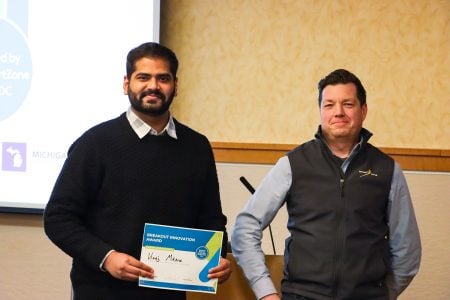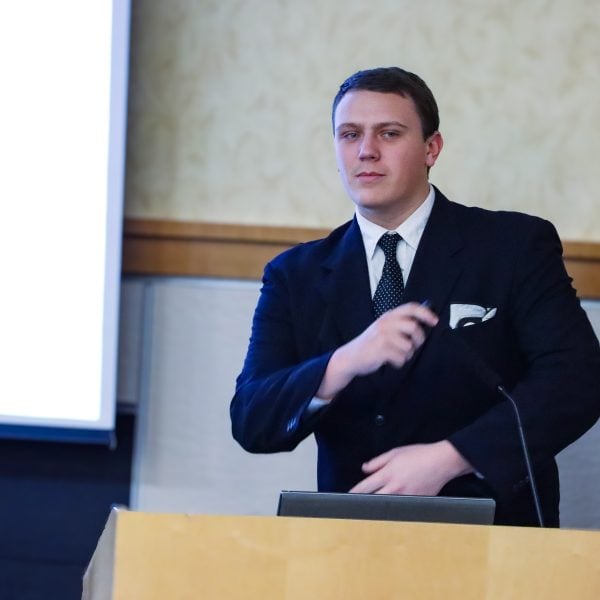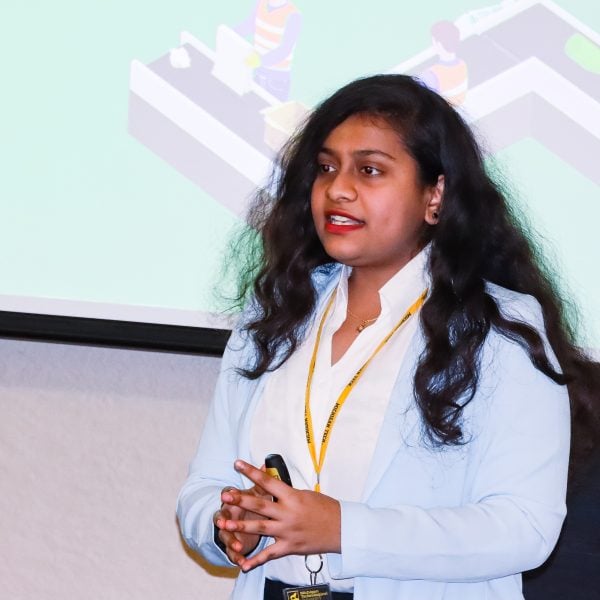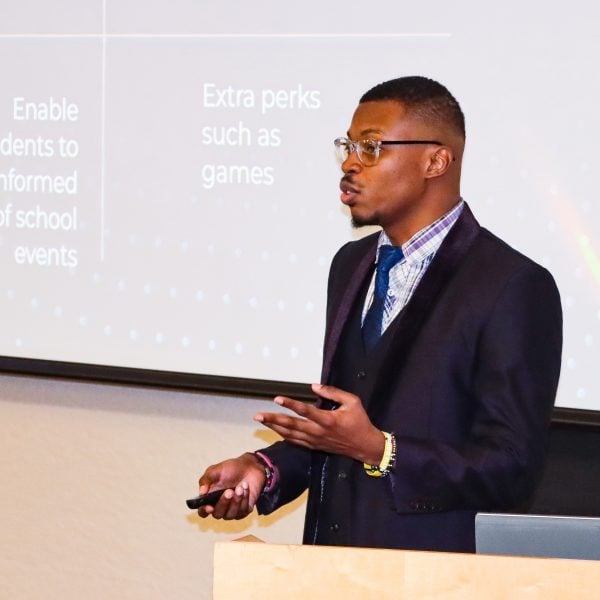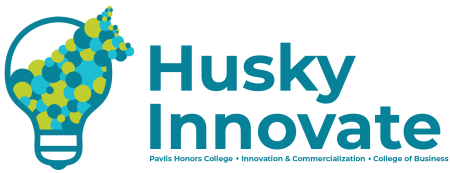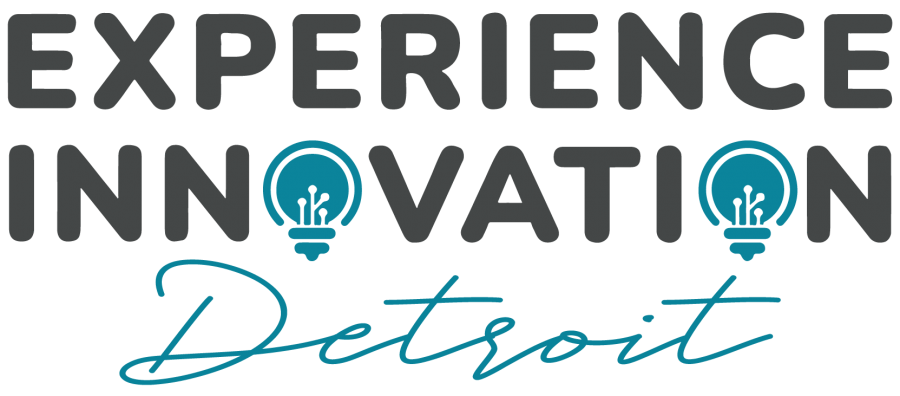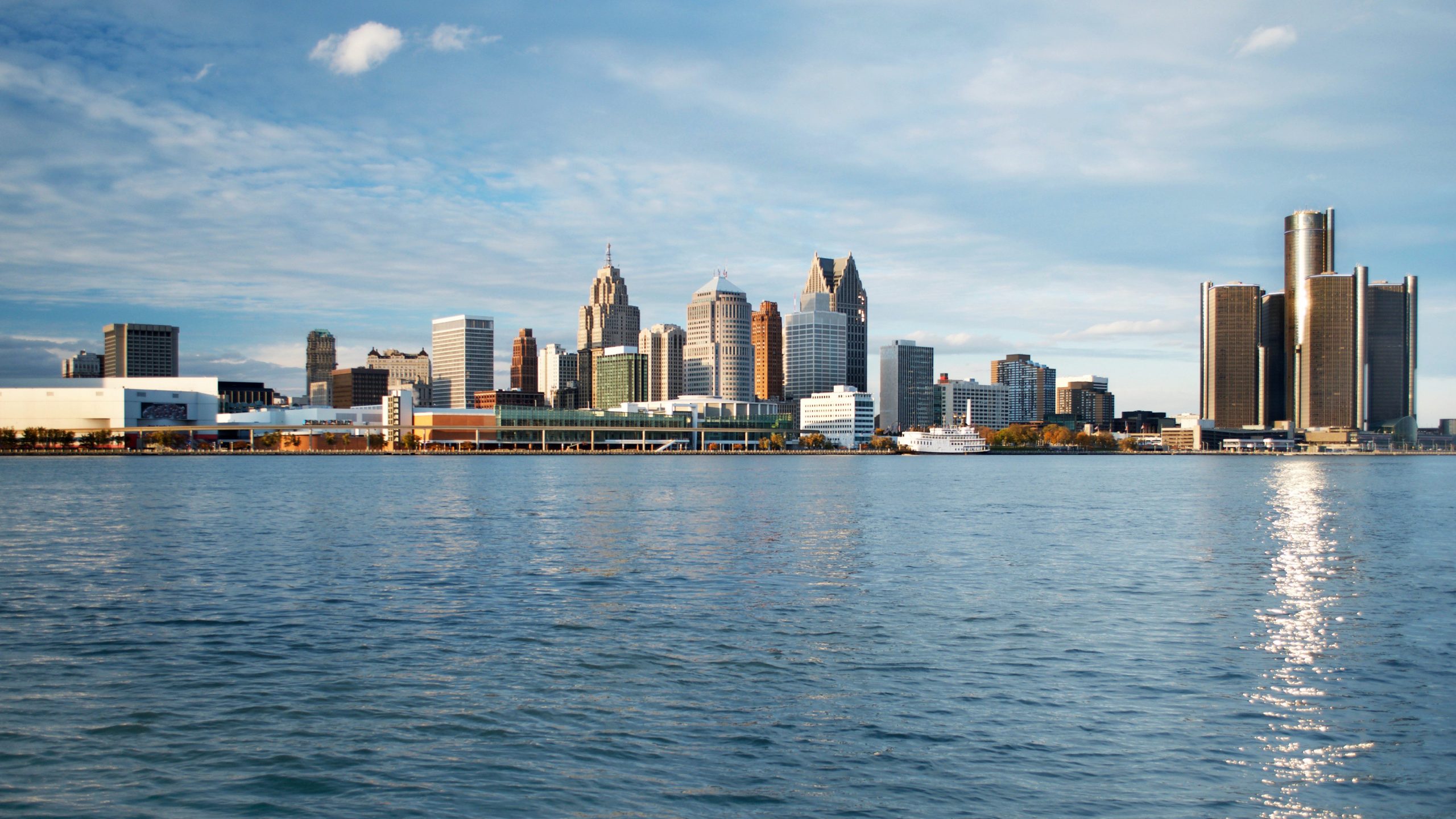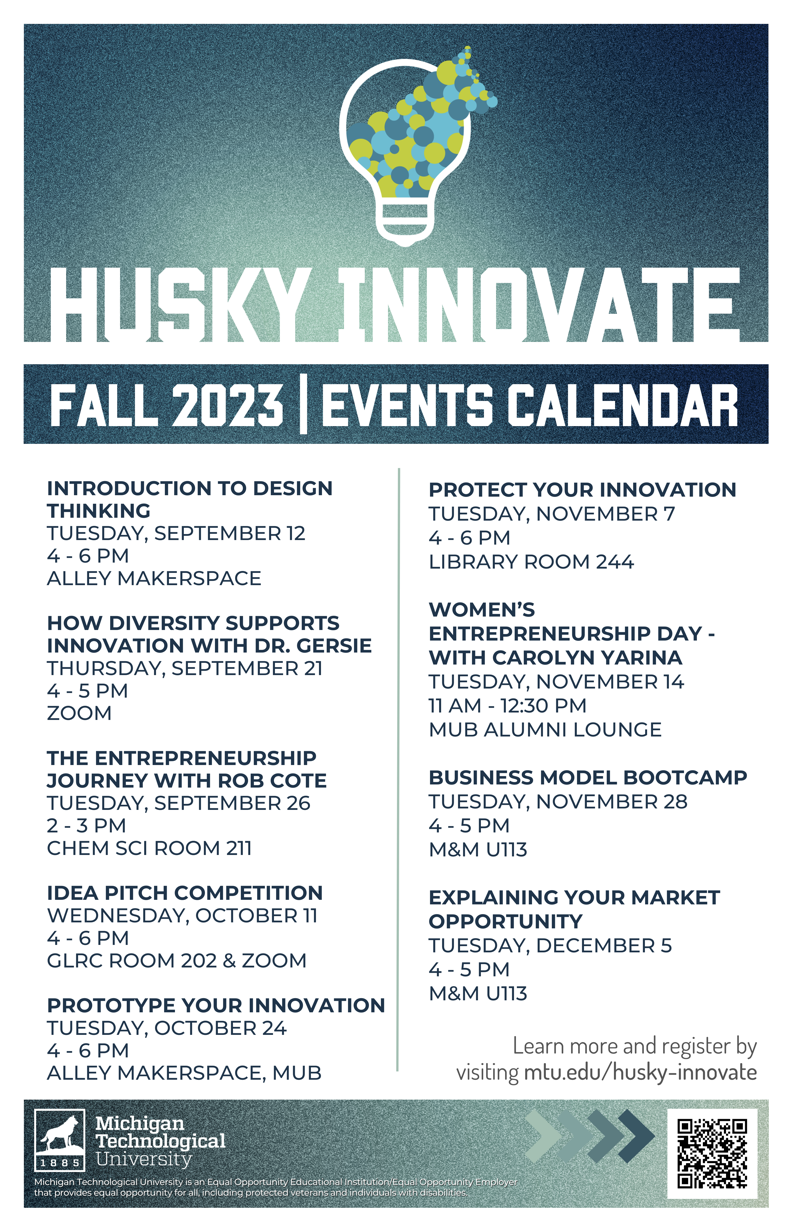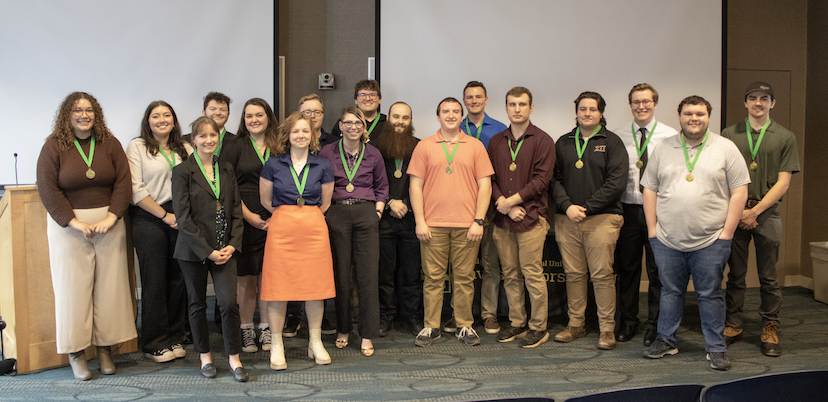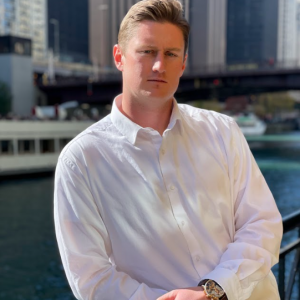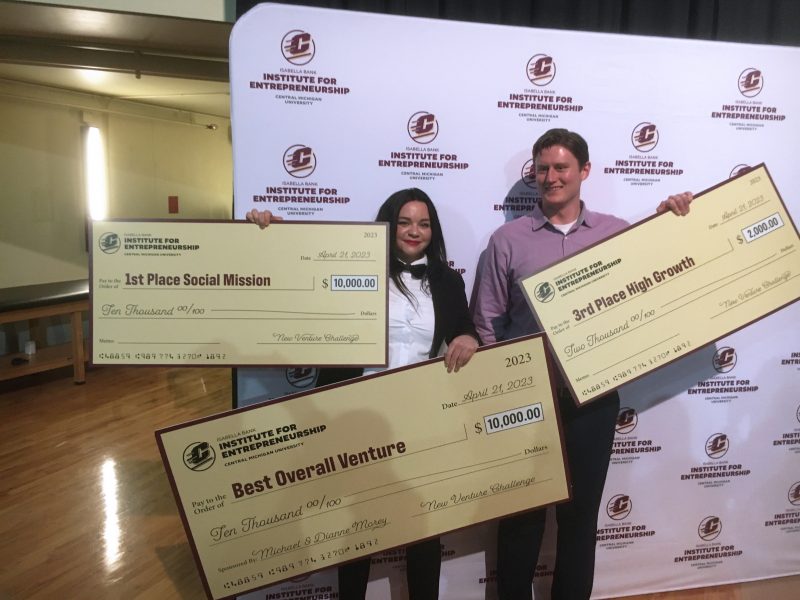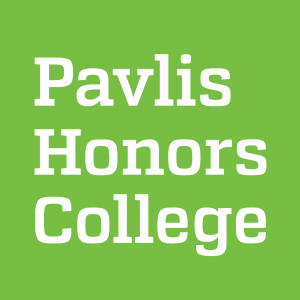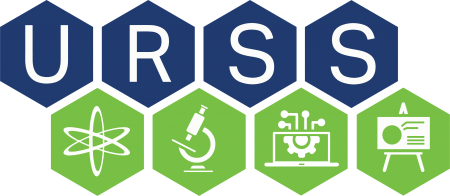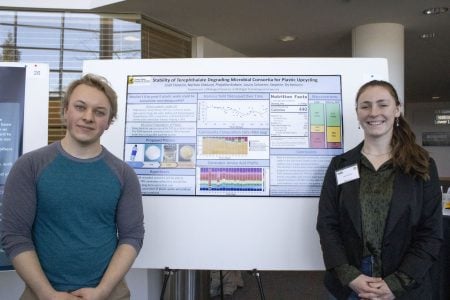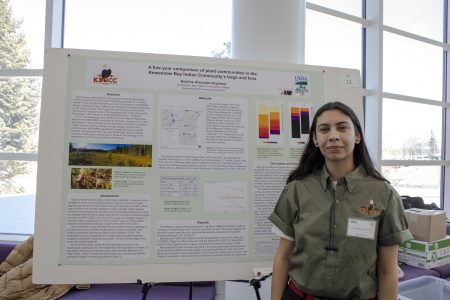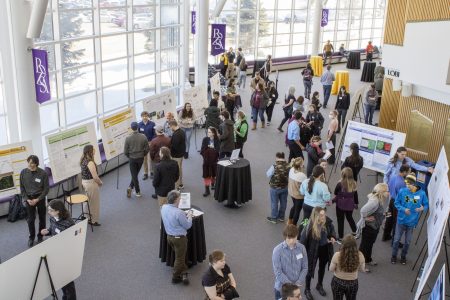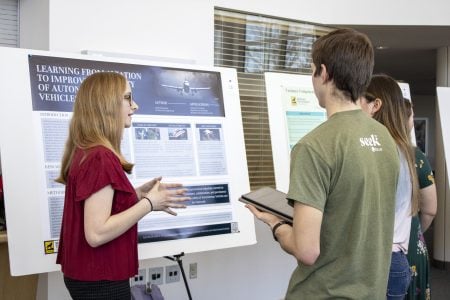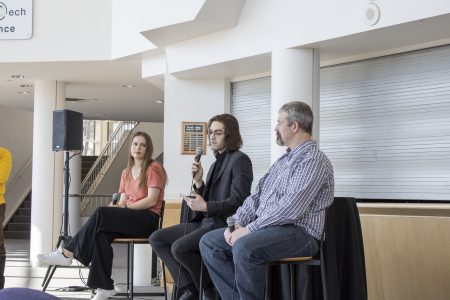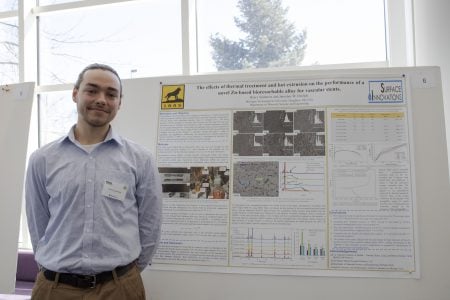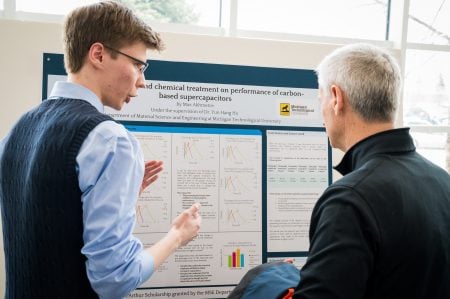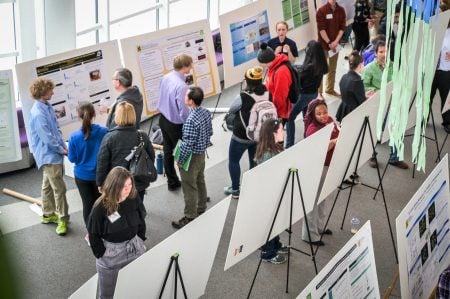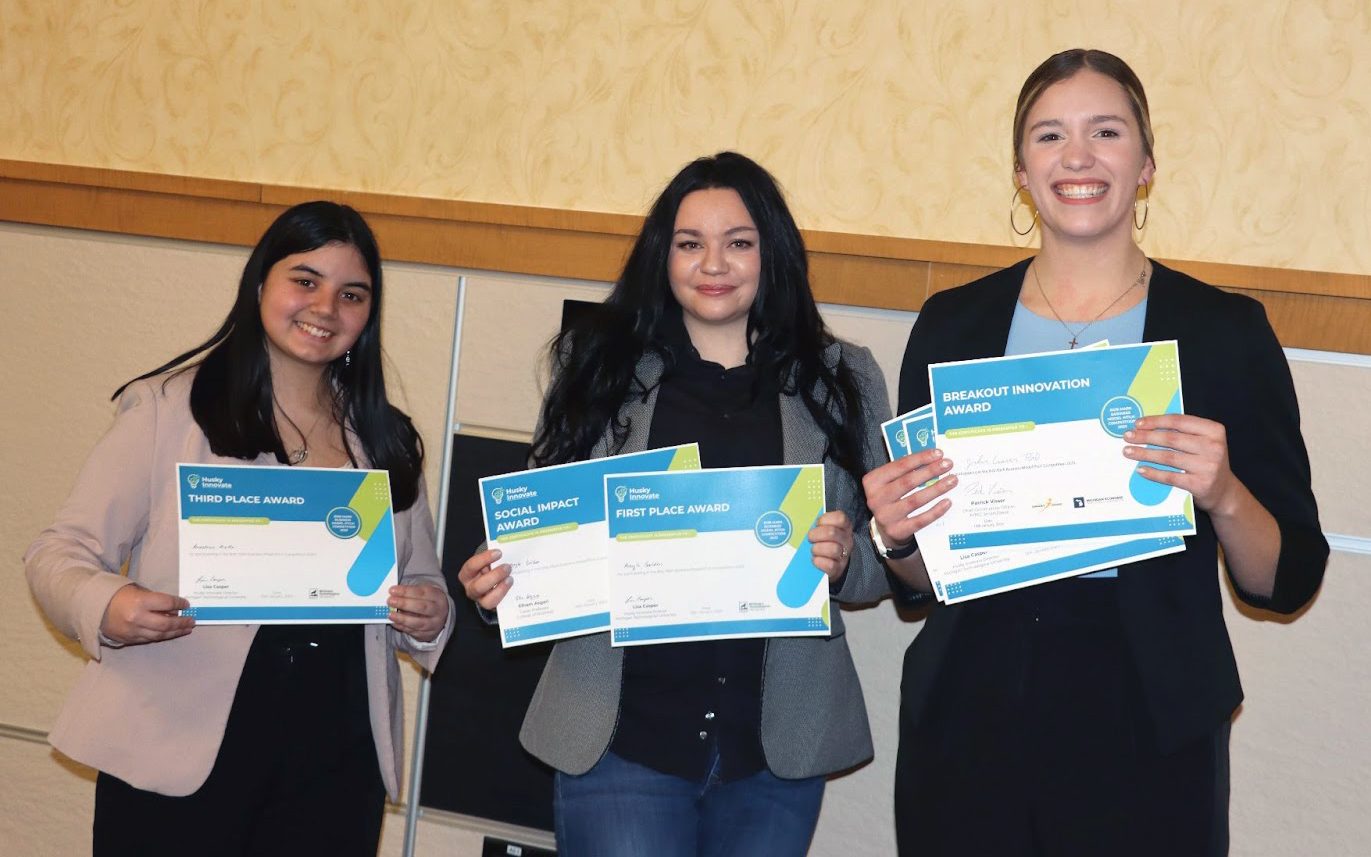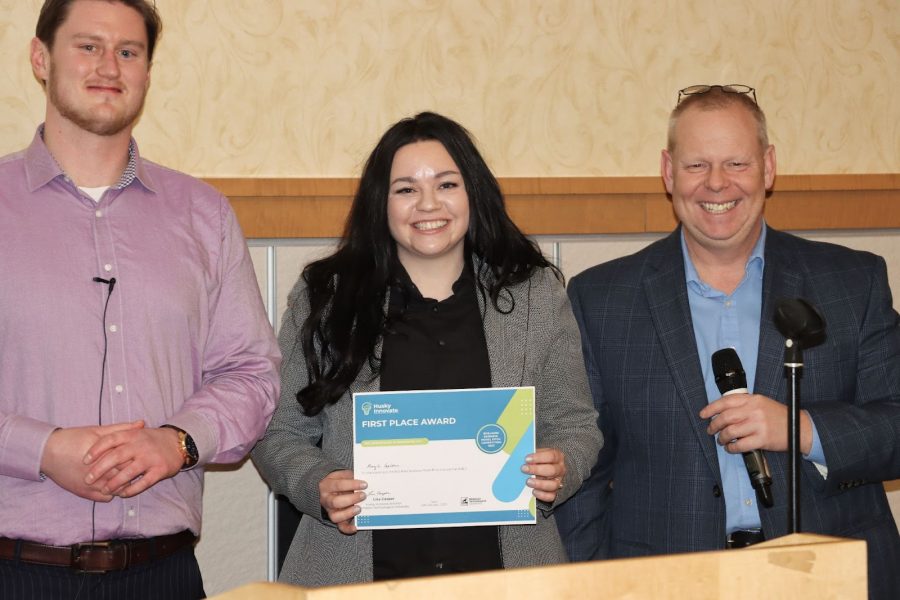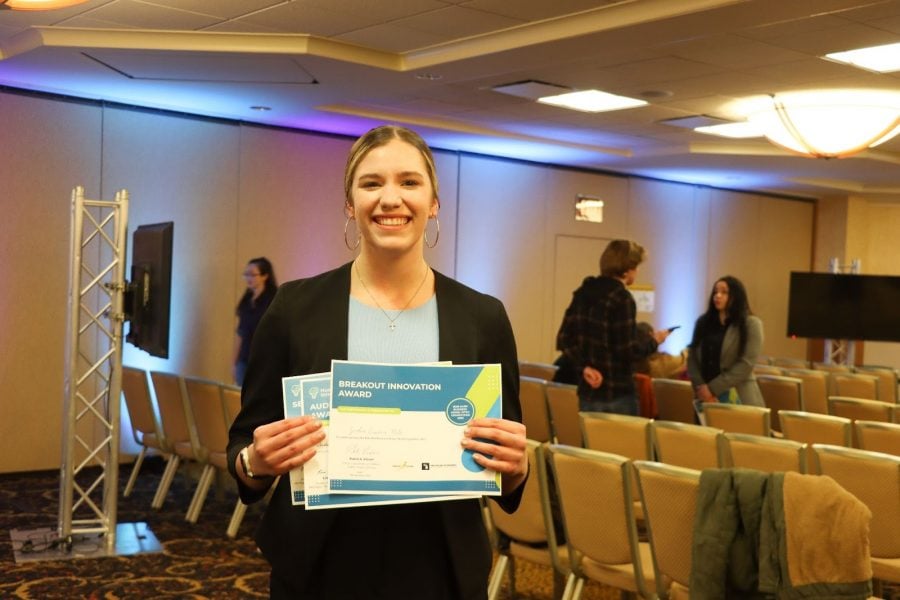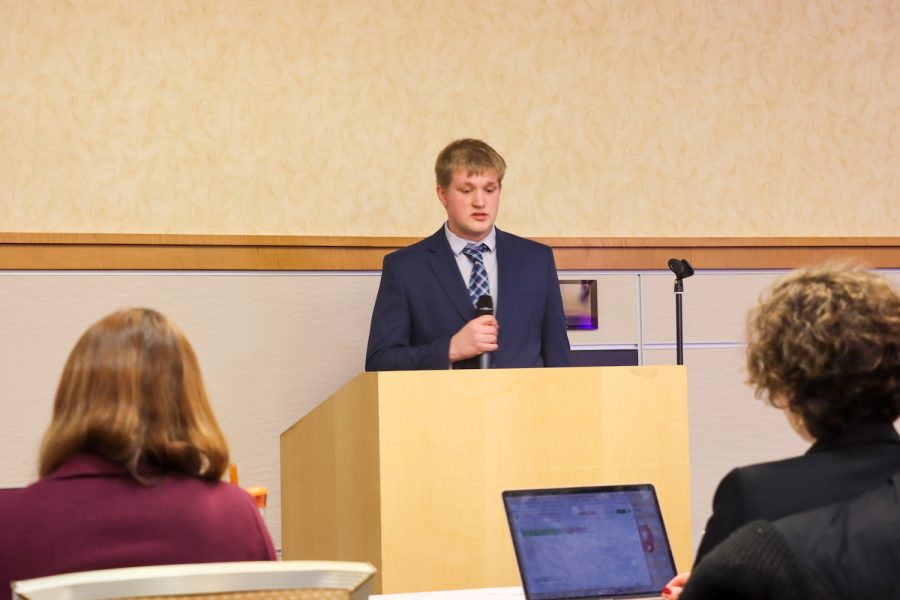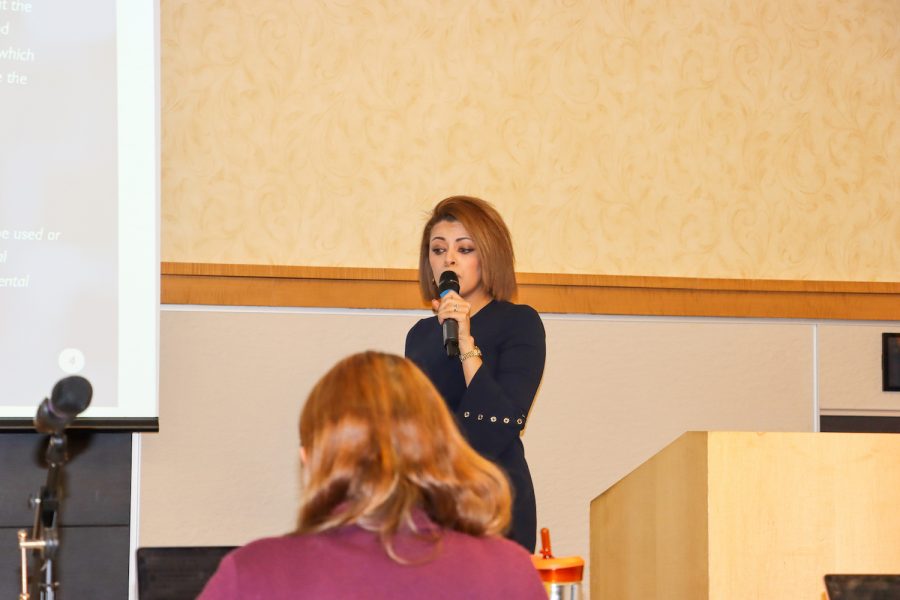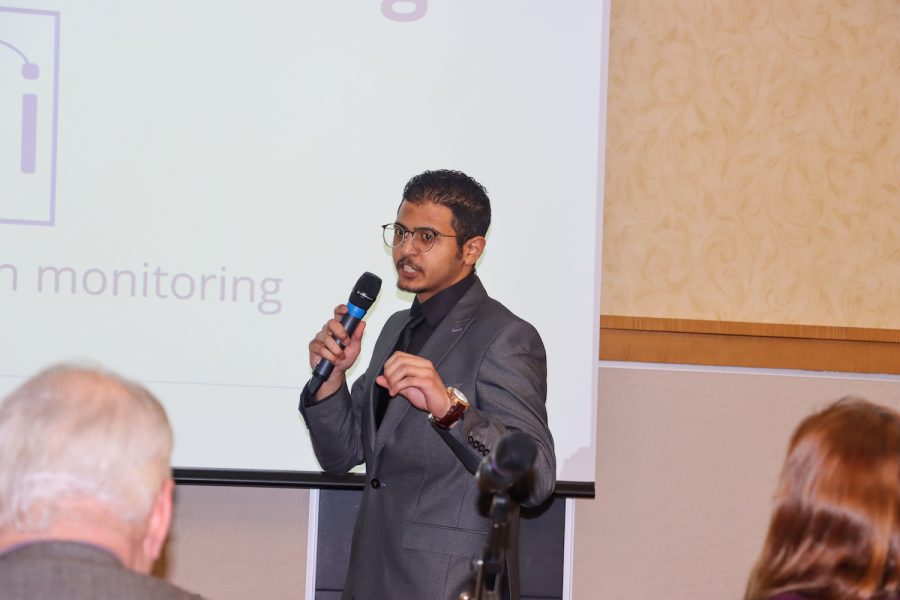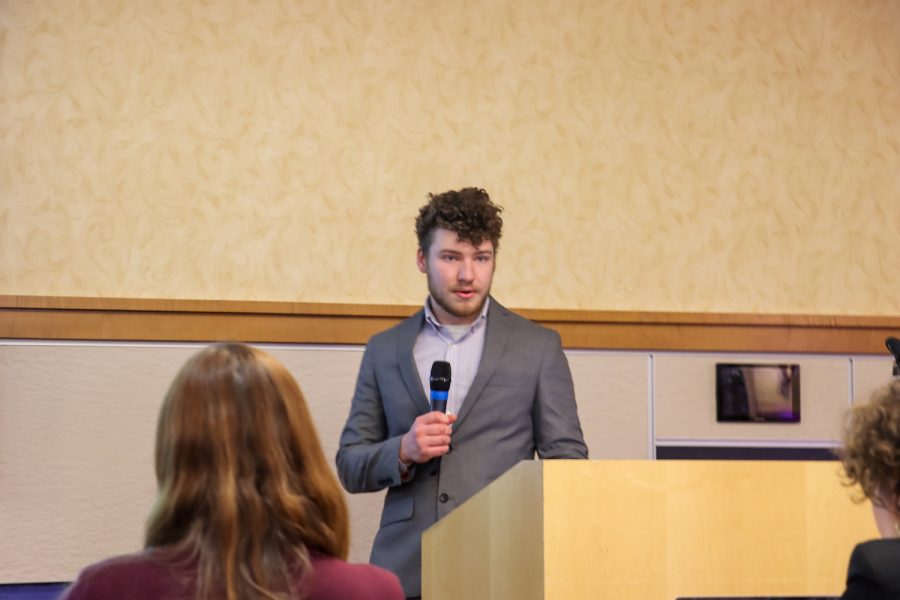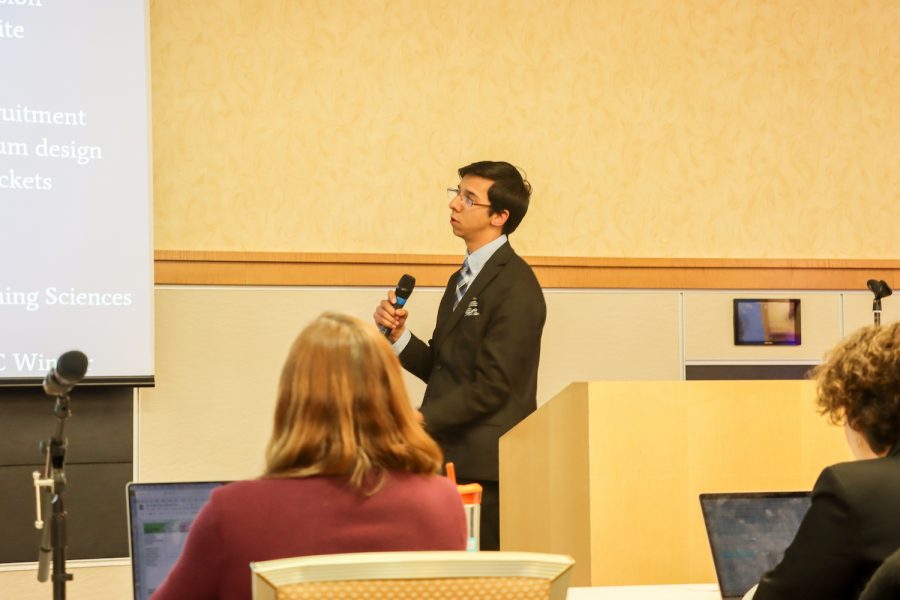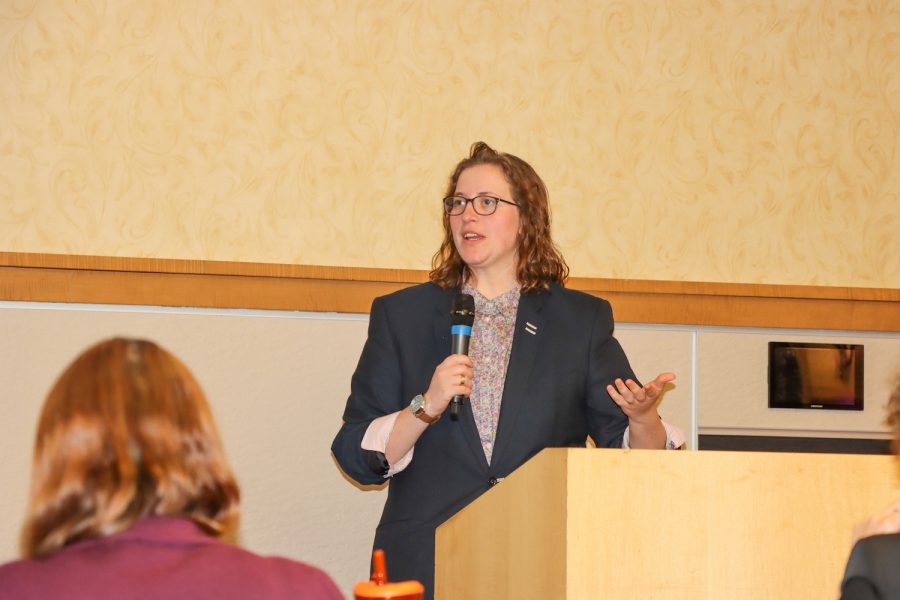Are you an entrepreneur looking for advice to launch your startup? Look no further than Founder’s Friday, a weekly meetup where aspiring entrepreneurs can come together to collaborate, founded and hosted by Jordan Craven, a current Pavlis Honors College student.
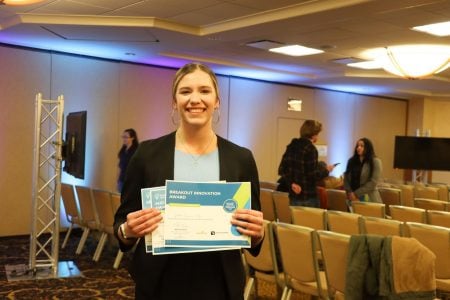
Jordan has been part of the Honors College since she was a first-year at Michigan Tech, even receiving a scholarship from Pavlis after pitching through Husky Innovate when she was in high school. Jordan is studying Management and Information Systems with a minor in Computer Science. “All of the components of Pavlis that I’ve done have been building up my company and have gotten me prepared to launch. It’s been really cool to now look at graduating with honors having accomplished things I didn’t know I was going to do in college. Instead of just preparing to launch, I realized that I was able to actually launch my business while I was still here. It was crazy to do that,” said Craven.
Craven’s business is called Sizeologic; a technology company that helps online clothing retailers with issues such as returns, sustainability, and customer satisfaction. Right now, Craven is working on creating a 3D fitting room, so that shoppers can see how clothes will fit online before purchasing them. “There’s a lot of waste from online returns. I would buy three pairs of pants then return two of them, and there’s a two-thirds chance they’re burned or landfilled when they go back, so it’s just really environmentally not cool. I’d like to help solve that as well, with my company.”
In her experience with the Pavlis Honors College and Husky Innovate, Jordan has traveled to many pitch competitions throughout the state, including the Experience Innovation: Detroit trip this past fall. “I noticed that we didn’t really have a space where students can go to work together with other innovators. I saw all of that downstate and recognized that there wasn’t a big community like that at Tech, and so I wanted to start something.”
That’s where Founder’s Friday comes in.
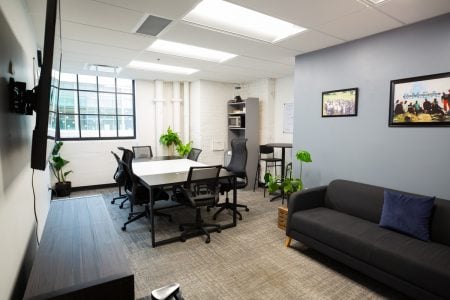
Founder’s Friday offers up-and-coming innovators and entrepreneurs the opportunity to network, collaborate, and brainstorm with other like-minded individuals. When asked about the inspiration for Founder’s Friday, Jordan stated “I know personally, by coworking, and being connected with other entrepreneurs and business professionals, that it helps inspire me, and I’ve been told by a lot of other people that it also inspires them, and I want to continue to build that, and build more of a consistent community.”
Craven has dedicated 15 hours a week to working on her company. “I was thinking, what if there was a place – I’m already actively engaged in this work for five hours – where other people can come and cowork with me. Or, if they want assistance, I have a lot of connections downstate. I want to connect people to the resources they need, and I’m trying to build up the innovator community at Tech.” Founder’s Friday focuses heavily on resource sharing, for all entrepreneurs, regardless of where they are in their journey. “It’s not super easy to figure out what the entrepreneurial steps are, and so pulling in all the resources from each stage of startups, bringing them together, sharing them with people, and showing others the steps I’ve been taking can be very helpful. My goal is to connect everyone so we can build each other up.”
“My goal is to connect everyone so we can build each other up.”
If you’re interested in connecting with other aspiring entrepreneurs, be sure to stop by Founder’s Friday happening every Friday from 12-5pm in the Minerals and Materials Engineering building (M&M) in room 718A, down the hall from the Pavlis Honors College. It takes place both in person and on Zoom and everyone is welcome. “Founder’s Friday is a resource that is consistent, whether it’s five minutes or two hours, or the whole five, whatever that person needs and wants.”
Written by: Frankie Straubel for the Pavlis Honors College
Husky Innovate is a collaboration between the Pavlis Honors College, the College of Business, and the Office of Innovation and Commercialization.
If you are interested in more information, please feel free to reach out to honors@mtu.edu.

